Data-driven Policies Against Pandemic: CTalk Spotlights the Power of Private-Public-Partnership
As one of the highlights in Smart City Summit and Expo (SCSE) every year, CTalk is conducted under the theme of e-governance with an in-depth idea exchange among global smart cities. In light of the pandemic crisis around the world, this year’s CTalk has been transformed into online sessions for the first time, and was broadcast via livestream from September 22nd to 24th.
Taipei City Mayor Ko Wen-je noted that from our daily life to the industry environment, things have been affected greatly by the pandemic. As a result, Taipei City is entering a “new normal” in regards to its governance. Through the CTalk sessions, the participating city representatives showed how using public-private-partnership enables them to introduce innovative technologies from private sectors and to integrate the data collected by local governments, which help lay the foundation of policy-making for the fight against the pandemic.
The 3 CTalk sessions at the 2020 SCSE involved 13 speakers representing cities or organizations from across 11 countries. The topics focused on the measures taken in response to the COVID-19: “Smart Healthcare Applications in Post-Pandemic Era”, “Innovations in Response to Coronavirus: How Coronavirus Sparked a Wave of Innovation in Human’s Life”, and “How Cities Stimulate the Deployment of Smart City Technologies and Innovate Business Applications After COVID-19”. The inspiring talks attracted over 700 registered audiences across 29 countries, as well as over 1,500 views.
Lu Hsin-ke, the Commissioner of Department of Information Technology of Taipei City Government, noted that during the pandemic, Taipei City Government introduced the face mask vending machines which function in compliance with rationing measures; MyCode, a real-name registration system for entrance into public sites; and COVID Monitoring Dashboard. These applications not only support policy-making in pandemic control, but also serve as a perfect model of public-private-partnership. Kirill Ilnitski, the Head of Information and Coordination of Moscow Agency of Innovations, pointed out that not only did the agency launched the “VirtronEX” between April to July to collect pandemic control solutions from both public and private sectors, it also helped with policy implementation and assisted in introducing the solutions to global markets, thereby reaping practical benefits through promotions. On the other hand, Amina Sambo-Magaji, National Coordinator of ABUJA Office for ICT Innovation and Entrepreneurship (OIIE) in Nigeria, remarked that engaging the private sectors is their best weapon in the battle against COVID-19. For example, the online hackathon in June accelerated the process to put into practice and reinforced the nation’s strength in fighting the coronavirus.
In terms of big data integration, Director Ryusuke Miki at Kobe City Government’s Public Health Department mentioned that Kobe has made good use of the big data and end-users’ applications to collect and integrate citizens’ medical records, thereby allowing the city to provide them with healthcare advice and remote counselling service, as well as building up a database of individual’s medical data. During the session, Commissioner Huang Shier-chieg from Taipei City Government’s Department of Health also remarked that connecting the data from the National Health Insurance Administration and the Centers for Disease Control and Prevention with Taipei’s COVID Monitoring Dashboard & Policy-making Support system gives rise to the efficiency in decision-making.
Commissioner Lin Chong-jie from Taipei City Government’s Department of Economic Development also pointed out that under the “new normal”, remote technologies, low-contact programs, smart healthcare, and open data will become essential trends. The online economy will see explosive growths in areas such as new e-commerce business models, logistics of delivery service, and city security/monitoring. They are indispensable in driving the digital transformation of cities. Therefore, Taipei City has been evaluating the possibilities of various innovative applications and services, dedicating itself to stimulating the development of such new businesses and industries.
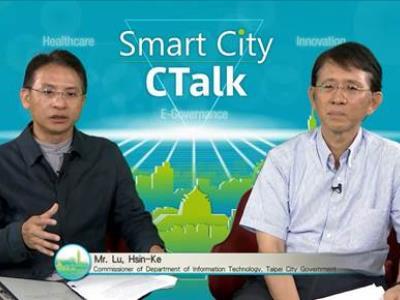

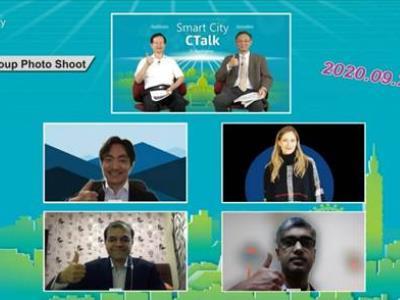
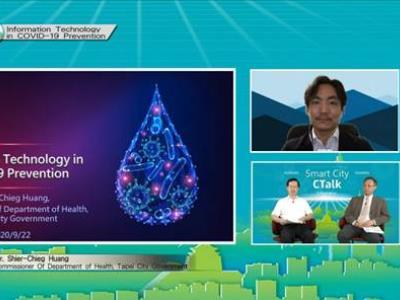
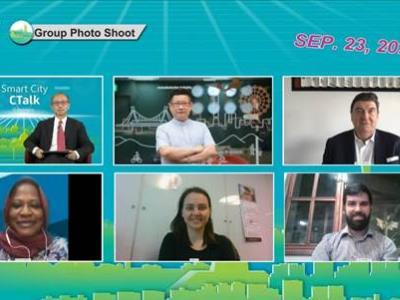
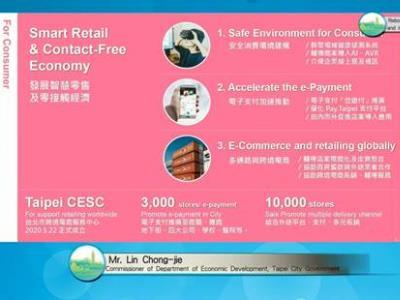
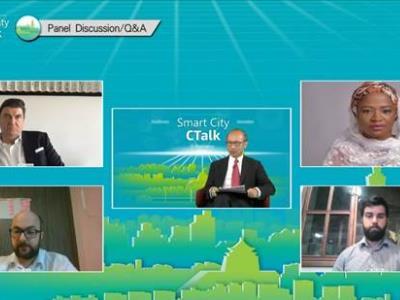

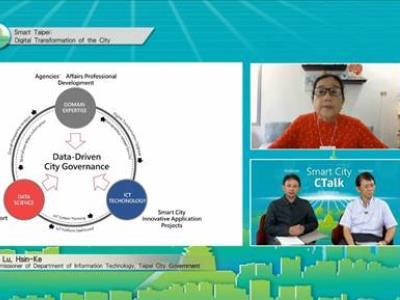




![Taiwan.gov.tw [ open a new window]](/images/egov.png)
